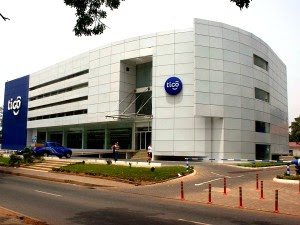Dar es Salaam. Ecobank Tanzania has unveiled two digital payment solutions on Wednesday, September 20, 2017 aimed at easing retail payment.
Ecobank Tanzania Managing Director Mwanaiba Mzee addresses the media in Dar es Salaam after the launch of Masterpass and M-Visa for easier retail payment. She is flanked by the bank’s head of commercial Banking Respige Kimati (right) and head of personal banking Ndabu Lilian Swere
Using the platforms known as Masterpass and M-Visa which are available in the Ecobank Mobile Application, the bank says it will help to promote financial inclusion among Tanzanians.Speaking to journalists today,Ecobank's managing director Ms Mwanahiba Mzee said the new banking services will guarantee safety and easy financial transactions.
"This service can be used by any person be it a customer or non-customer, all one needs is a smartphone with Ecobank's application," she said.While demonstrating how the new services operate, Ecobank's manager for electronic channels Mr Filemon Tesha said the importance of using these new services include getting money faster and also increasing sales to all merchants.
He also said the digital services charge 0.5 per cent at the points of sales (POS) while the normal charges for money transactions range from 3 per cent to 5 per cent of the transaction made.He also said these services allow easy access for a person to follow up on their accounts as one can monitor the money transactions easily and it doesn't need physical contact with banks.The head of personal and domestic banking Ms Ndabu Swere added saying Ecobank's aim is to strengthen services and simplify transactions to its customers
Source: Citizentz

























